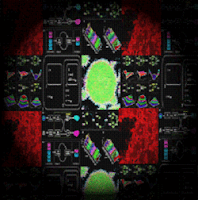 ESF-UB Conference in Biomedicine
ESF-UB Conference in BiomedicineEUROPEAN CONFERENCE ON SYNTHETIC BIOLOGY (ECSB) II: DESIGN, PROGRAMMING AND OPTIMISATION OF BIOLOGICAL SYSTEMS
The field of synthetic biology holds a great promise for the design,
 construction and development of biological systems (artificial or modified), by offering viable new routes to ‘genetically modified’ organisms, smart drugs and hybrid computational-biological devices. The informed manipulation of such biological systems could have an enormous positive impact on our societies, with its effects being felt across a range of activities such as the provision of healthcare, environmental protection and remediation to the construction of smarter more ubiquitous bio-integrated computing systems, etc.
construction and development of biological systems (artificial or modified), by offering viable new routes to ‘genetically modified’ organisms, smart drugs and hybrid computational-biological devices. The informed manipulation of such biological systems could have an enormous positive impact on our societies, with its effects being felt across a range of activities such as the provision of healthcare, environmental protection and remediation to the construction of smarter more ubiquitous bio-integrated computing systems, etc.The basic premise of synthetic biology is that methods commonly used to build non-biological systems, such as those employed in the computational sciences and the engineering disciplines that can deal with large and complex systems, could also be used to specify, design, implement, test and deploy novel synthetic biosystems. Synthetic biology lies at the interface of a variety of disciplines ranging from biology through chemistry, physics, computer science, mathematics and engineering.
Two communities are emerging within synthetic biology, namely top-down - i.e. knocking out or modifying functions of existing cells, and bottom-up - that is construction of artificial systems from first principles, protocells, etc. The aim of this conference is to generate new vigorous interactions between the disciplines that impinge on (and contribute to) Synthetic Biology, and to bring together in the same context top-down and bottom-up researchers.
ECSB 2009 is the second conference in the series. It will comprise invited talks by internationally known scientists who are leaders in their fields, tutorials to introduce young researchers to Synthetic Biology, contributed talks and posters. We expect this to be a major international and multi-disciplinary scientific and educational event. The conference will be limited to just over 100 participants, in a venue whose environment is highly conducive to networking and scientific interactions.
Some, but not all, of the topics to be presented in the conference include: DNA sequencing and synthesis, chemical and biological networks, computational techniques (modelling, data mining, optimisation) for synthetic biology, minimal genomes, evolution (natural, directed and simulated), origins of life, biological systems, cell cycles and circuits, and infrastructures for synthetic biology, minimal cells.
Conference title: Plasmids and plasmid modules as orthogonal devices in Synthetic Biology
Prof. Fernando de la Cruz. Universidad de Cantabria.
Prof. Fernando de la Cruz. Universidad de Cantabria.

